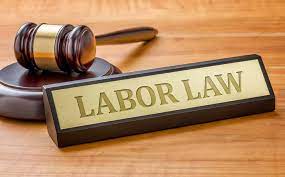In the state of New Jersey, it is imperative that you follow all guidelines outlined in the Worker Adjustment and Retraining Notification Act (WARN Act) when it comes to terminating an employee.
By taking this action, you can guarantee fair treatment of your employees and prevent any financial impact from your layoff or reduction in force.
To understand WARN Act compliance in New Jersey, we need to look at three different areas:
- The federal WARN Act requirements
- The state-specific WARN Act requirements in NJ
- How to abide by the NJ WARN Act regulations
What is the WARN Act of New Jersey?
The New Jersey WARN (Worker Adjustment and Retraining Notification) Act, like its federal counterpart and several state mini-WARN Acts, mandates that larger companies provide employees advance notice of any significant layoffs, plant closings, or personnel reductions.
The primary objective is to provide affected employees adequate time to prepare for the impending changes and protect their livelihoods. If employers fail to provide the required advance warning, they run the danger of having to pay affected workers’ compensation.
Some states, like New Jersey, Illinois, California, and New York, have their own mini-WARN acts. When a state lacks its own regulations, other states follow those of the federal WARN Act.
NJ WARN Act 2024: Who is Impacted?
If fifty or more employees at an establishment lose their jobs as a consequence of mass layoffs, plant closings, or transfers, NJ WARN will be applicable. The updated definition of an establishment is defined as a place of employment operated by an employer for more than three years. This might be applicable to a single place or a collection of places.
For example, in the event of a mass layoff, termination of operations, or transfer of operations affecting fifty or more employees (full- or part-time; the distinction between full- and part-time employees is no longer made), the employer will be required to comply with notice and severance benefit requirements. Field workers and remote workers may be among the fifty personnel.
Therefore, a company with five locations that lose ten or more employees at each location may be subject to the notification and severance compensation requirements.
What Are the Federal WARN Act Regulations?
The WARN Act defines who is subject to the law in a number of rules. The following terms apply to this:
- If your company employs more than 100 people full-time, you must abide by the WARN Act.
- The WARN Act is applicable to both privately held and publicly traded companies.
- The WARN Act applies to all organizations, whether they are nonprofit or for-profit.
- A WARN warning is necessary in the event of a plant closure or a significant layoff.
The first three prerequisites are quite basic. But the last sentence relies on the federal definitions of “mass layoff” and “plant shutdown,” which may not match state-specific meanings. We’ll talk about that distinction in relation to the state of New Jersey in a bit.
The federal WARN Act mandates that affected employees receive a WARN notification sixty days prior to their final day of employment. Subsequently, your organization must also notify the government of your decrease occurrence.
You also have to provide this notice sixty days in advance to the state’s unit for state-dislocated workers and the top elected official of the local government where your employment site is located.
The NJ WARN Act outlines state-specific requirements that differ from federal constraints, highlighting the importance of understanding these differences.
NJ WARN Act 2024: WARN Act Triggers in New Jersey
The NJ WARN Act’s amendments have changed the triggers for employer obligations, so it’s vital for businesses to know when the law goes into effect.
In particular, firing fifty or more employees who “report to” a workplace within thirty days is a qualified occurrence. Using this combination, there might be three rounds of layoffs within a ninety-day timeframe.
New Jersey’s Minimum WARN Act: Employee Count
The revised NJ WARN Act applies to companies with 100 or more employees nationwide, regardless of years of service, employment status, or weekly work hours. The policy has been updated to include individuals with less than six months of employment and part-timers.
Exceptions to the WARN Act for New Jersey
Despite the NJ WARN Act’s extensive duties, there are a few things to be mindful of regarding exceptions. Severance compensation can be met through severance, back pay, or fines under other WARN Acts, agreements, or collective bargaining agreements.
What Information Must a New Jersey WARN Notice Letter Contain?
The NJ WARN Act mandates that affected employees receive a letter outlining the closure or layoff, its reasons, the number affected, and the effective date. Employers are now required to take the severance pay provisions into account when preparing these notices.
What to Do in New Jersey When There Are Layoffs
It’s critical for HR managers to comprehend the New Jersey WARN Act. Compliance ensures a fair and transparent process when there are significant changes in the workforce. HR professionals who understand rules, advocate for employee rights, and foster open communication can successfully navigate the NJ WARN Act’s complexities. This will support a strong workplace culture and help to maintain compliance with both federal and state laws. Starting the employee offboarding process is the next major duty after informing staff members of impending layoffs.
Factorial Offboarding:
Factorial streamlines activities and guarantees a seamless transition for departing employees by simplifying the offboarding process. You can effectively handle exit procedures with Factorial, including gathering business property, changing access rights, and holding departure interviews. Software for offboarding makes the process easier from beginning to end.
Important components of offboarding during layoffs:
- Ensure clear communication with the leaving employee about important details like the last day of work and the return of company property before they leave.
- Task Automation: To save time and reduce the possibility of error, automate offboarding procedures like rescinding system access, updating records, and alerting pertinent departments.
- The document ensures compliance by providing comprehensive documentation of the offboarding process, including termination letters and exit surveys.
- Centralize access control administration to protect firm data and simplify the withdrawal of access to company systems and private information.
FAQs on NJ WARN Act 2024:
What occurs when a business disregards the WARN Act?
Does the employer face consequences for failing to comply with the WARN advance notice requirement? Indeed. Employers violating the WARN Act must provide notice and pay back pay and benefits to affected employees for up to 60 days.
Does New Jersey have a warning state status?
New Jersey is one of the places where businesses have to abide by stricter restrictions. Employers now face even stricter requirements under the New Jersey WARN Act as of January 2023, including a longer notice period and required severance for affected employees.
Do mass layoffs violate any laws?
Important: Even in cases when a layoff or furlough is temporary, a minimum of 50 employees may result in a California WARN Act violation.
To sum up the NJ WARN Act 2024:
Employers must adjust to the significant changes brought about by New Jersey’s recent WARN Act modifications. To protect the welfare of impacted workers and prevent further financial repercussions for the employer, the enlarged purview and heightened duties necessitate cautious thought and adherence.
Employers in New Jersey should thoroughly evaluate their plans and practices to comply with the modified NJ WARN Act.
Also, Read:
- Pornography law New Jersey
- WARN Act NYC: Meaning, Requirements
- Probate: probate in new jersey
- WARN Act NYC: Meaning, Requirements
Warn Notices Florida: Everything You Need To Know(Opens in a new browser tab)



